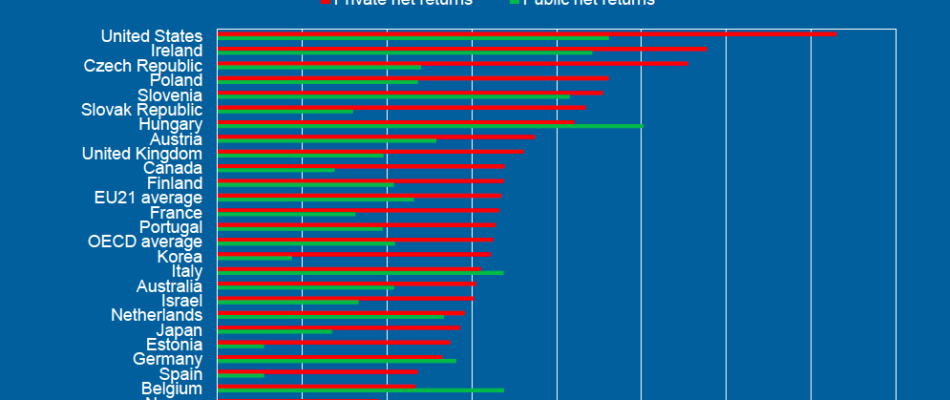
New unemployment figures prove the value of higher education
BRUSSELS – The socio-economic benefits of higher education are unquestionable. Hence, governments in Europe should give education a priority when they design their policies for the future. A report published by the OECD today highlights the benefits of securing access to tertiary education and providing good study and career guidance services.
“We are pleased to see that this report underlines how important education is for the individuals and society as a whole. Not only does it reveal that unemployment is much lower among people with higher education, but their unemployment has grown at a much slower rate when compared to other educational levels. While we are happy that the OECD focuses on the benefits of education in this sense, it fails to look at all the positive outcomes for the society such as an improved knowledge-base, cultural awareness and an active participation in the civil society,” says Taina Moisander, Vice-Chairperson of the European Students’ Union (ESU).
An inaccurate perception of public expenditure
The OECD’s report, called Education at a Glance 2013, also concludes that governments have more or less maintained their investments in education during the economic crisis from 2008 to 2010. However, ESU’s recent research on Financing the Students’ Future (FINST) has revealed how much public spending has decreased since then in relation to a significant rise in student numbers. A Eurydice report published in March also found big regional differences in Europe in terms of budget cuts from 2010 to 2012, where several countries had imposed painful budget cuts.
“The OECD analysis fails to look at the various socio-economic benefits of a more educated society. More and more people equip themselves with more competitive skills and invest in education for their future. Since we can see that tertiary education increases the chances of employment it only makes sense to enlarge the share of public expenditure in education, to strengthen accessibility and completion rates further and decrease the cost burden on individuals and their families,” says Moisander.
Governments need to take responsibility
ESU has outlined the importance of developing educational policies that do support social as well as economic gains. ESU therefore welcomes that the OECD acknowledges the value of providing young people with a set of diverse abilities, including soft skills such as teamwork, communication and negotiation like studied in ESU’s project on Student Advancement of Graduates Employability (SAGE).
“Youth unemployment can be eradicated if the right set of policies has been developed and applied, which have to do with access to quality public education for all. ESU disagrees with the OECD conclusion, that there is no correlation between the level of public funds invested in education and youth unemployment. Quite the opposite, young people without formal qualification are most hit by the crisis and it is the responsibility of the state to push for active labour market policies, in particular through investing in higher education and training,“ says Moisander.
— END —
For more information, please contact:
Taina Moisander, ESU Vice-chairperson: +32/479.591.499 // taina@esu-online.org or Robert Hlynur Baldursson, ESU Communications Manager: +32/473.669.894 // robert@esu-online.org

The European Students’ Union, headquartered in Brussels, is the umbrella organisation of 47 national unions of students from 39 European countries. ESU represents and promotes the educational, social, economical and cultural interests of students at the European level. Through its member unions, ESU represents over 11 million students in Europe. To find out more about ESU, follow us on Twitter @ESUtwt, check out or Facebook page or visit www.esu-online.org. ESU celebrates its 30th anniversary in 2012.
